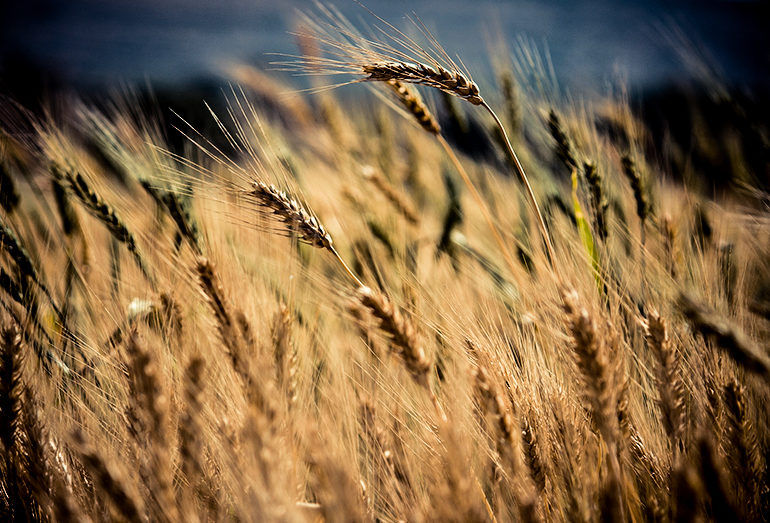But He said to me, “My grace is sufficient for you, for My power is made perfect in weakness.” Therefore I will boast all the more gladly of my weaknesses, so that the power of Christ may rest upon me.—2 Corinthians 12:9
In 2005, a year after a complete hysterectomy, I began seeing multiple doctors for what seemed like multiple unrelated issues. I had painful blisters in my mouth, rashes inside my elbows and knees, debilitating pain in my joints, bone loss, weight loss, hair loss, neuropathy, and gastrointestinal issues from which I’ll spare you descriptions.
It was my ob-gyn who provided the “Eureka!” moment. After checking my blood levels to see how my body was responding to hormone therapy and seeing virtually no hormones at all, she said, “You have a malabsorption problem.”
Gallbladder? Ulcer? Cancer? So my next trip was to my gastroenterologist, who, after a biopsy and blood work, gave me my diagnosis: celiac disease. “Can you spell that?” I asked. It was a new one on me.
No more tossing pizza crusts in the air. No more homemade braided loaves. No more homemade French or sourdough bread. It was time to clean out the fridge and pantry, consult a dietitian and learn to cook all over again.
Celiac disease is an inherited autoimmune condition in which your body attacks itself in response to gluten, a protein found in such grains as wheat, rye and barley. Other grains, such as oats, can be contaminated in growing or processing. Because celiac is autoimmune, the symptoms are all over the map. Some people have seizures. Others die of malnutrition. Some contract cancer.
Though celiac disease is a relatively new name, it is a long-established condition tracing back to 1st-century medical literature. However, it wasn’t until World War II that a researcher noticed a correlation between a failure to thrive and bread consumption. Then it wasn’t until the 1990s that celiac disease was widely understood, and it wasn’t until the week before my diagnosis in 2005 that my doctor had attended a seminar to learn how to identify and help potential sufferers, who represent roughly 1 percent of the population.
I am that person for whom food industry workers must change gloves and use fresh ingredients and serving utensils. I am that person who can’t come into your house if you’ve used wheat-based flour within the past 72 hours. I am that person who can’t eat your food unless I not only know exactly what is in it but also exactly how you prepared it.
Since my diagnosis, fellowships have been a challenge. I either provide all the food or prepare an entree salad, which I must serve myself first before anyone touches the serving spoon to their gluten-containing plate. Yes, people with celiac disease are that sensitive.
I also must think about what comes in contact with my body. Wheat-based shampoo left me looking like a giant raspberry and nearly sent me into anaphylaxis. One time I had a large, itchy, clearly defined rash on my forearm that my doctor believes came from resting my arm on a contaminated surface. Weeks later, I was still treating it.
Traveling is a challenge. Often I must travel with my own food or eat something substandard just for sustenance. (As one server asked me, “What’s a gluten?”) I seldom get invited to someone’s house for dinner, though I often have guests at my own home. Mission trips are also a challenge, so I choose opportunities selectively to ensure I can be a benefit to, and not a drag on, my team.
I don’t share all this so you can pity me. I don’t want or need pity. By God’s grace, I function just fine. I share this to make you aware that ordinary-looking people can have extraordinary challenges you can’t see by looking at them. Celiac disease is but one of them.
Some people struggle with chronic pain and inflammation. Some people struggle with life-threatening allergies. Some people struggle with diabetes or other diseases that greatly restrict their diets or activities. The list goes on.
No, I don’t want your pity. I want your understanding, not just for me but for others like me. Please don’t think that “negligible” amount of flour in your recipe won’t affect me. Please don’t suggest you can cure me by introducing gluten into my diet slowly. And please don’t shake your head as I order my food as if I’m some hipster just trying to be cool. I’m too old for that anyway.
Sometimes my condition is a pain, literally and figuratively. Mostly it’s an inconvenience. But I am sustained daily by the Bread of Life, and someday—maybe someday soon— I will break bread with Him at His table.
I consider that our present sufferings are not comparable to the glory that will be revealed in us.—Romans 8:18



You must log in to post a comment.